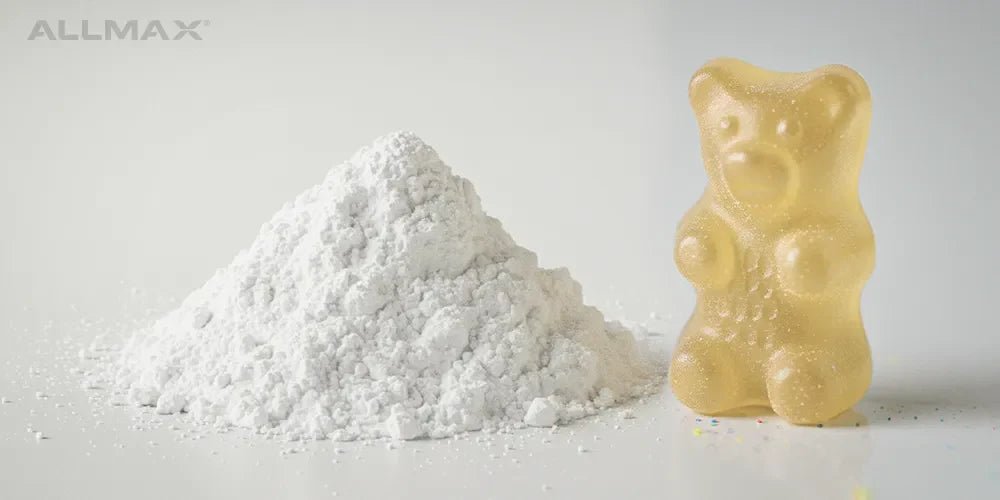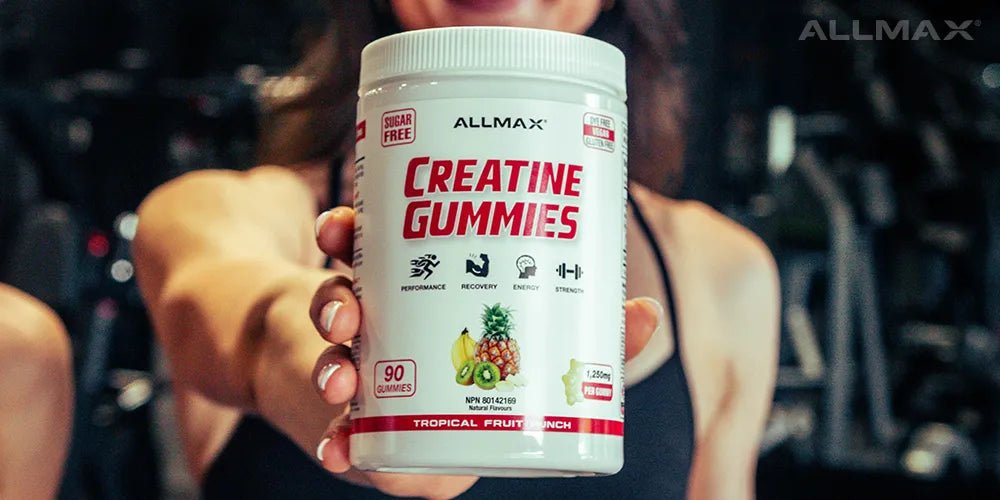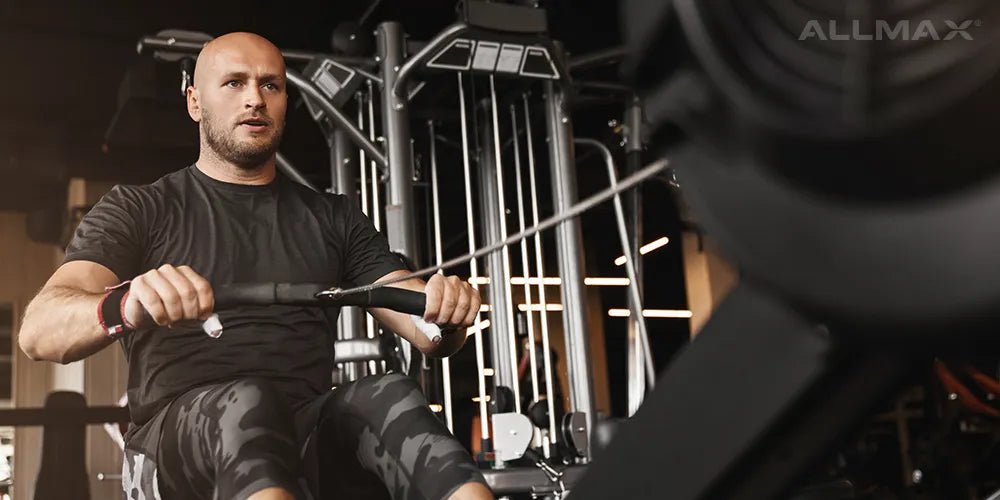Creatine is one of the most effective and researched supplements for muscle growth. It boosts strength, speeds recovery, enhances performance, and fuels lean mass gains. Safe, proven, and powerful, creatine helps you train harder and build bigger, stronger muscles.
Table of contents
How to Accelerate Your Muscle Gains with Creatine
Whether you’ve been training for years or just picked up your first dumbbell yesterday, there’s one powerhouse supplement that can make every second in the gym count: creatine.
This powerful supplement can help increase lean body mass, accelerate muscle recovery, enhance performance, and even boost cognitive function.
Backed by more than 650 published studies and trusted since the early 1990s, creatine monohydrate stands as one of the safest and most proven supplements available.
Rather than altering the chemistry of your body in potentially harmful and untested ways, creatine supplementation simply increases the amount of a substance naturally produced by your body, giving your muscles more of the energy they were already using for strength and endurance.
What is Creatine?
Creatine is an amino acid produced from glycine, methionine, and arginine. Your body naturally produces 1-2 grams of it daily and uses it to supply energy to your muscles.
90-95% of your body’s creatine is found in your muscle cells, while around 5% can be found in your brain.
Creatine fortifies your body’s muscles in two main ways:
- First, creatine increases the energy in your muscles. It does so by bonding with phosphate molecules to produce a substance called phosphocreatine.
During high-intensity exercise, your body taps into phosphocreatine to generate more adenosine triphosphate (ATP), the high-energy molecule that powers muscle contractions.
ATP is often referred to as the ‘energy currency’ of the cell, and it is the main energy source for heavy lifting and high-intensity exercise.
In short, more creatine means more phosphocreatine and more phosphocreatine means more ATP. More ATP means more fuel for your workouts, helping you train harder, lift heavier, and get the most out of every session.

2. The second way creatine enhances your muscles’ performance is by increasing cellular hydration.
Creatine draws water into cells, increasing their volume. This increase in cell volume has been associated with anabolic signals that are believed to be the first step to utilizing protein in the muscles, which promotes muscle growth.
In summary, creatine increases cell volume by raising cell hydration levels, a process believed to trigger protein synthesis and support muscle growth. More protein synthesis leads to greater increases in muscle mass as a result of training.
Other benefits of increasing your body’s creatine levels include:
15% increase in power output
30% increase in energy when used in short bursts
Increased lean body mass
Increased maximal strength and endurance
Reduced muscle damage
More rapid muscle recovery
Better pumps
Minimized muscle tightness
Boosted cognitive ability
Enhanced working memory
Increased attention span
How do you take creatine to build muscle?
While some supplements can only be taken for defined periods, creatine is safe to use indefinitely, and the enhancements to exercise performance are sustained over time.
There are several effective ways to add creatine to your routine.
1. Start with a steady daily dose
Follow the dosage guidelines below and take creatine daily for at least 4 weeks. This gradual approach allows your muscles to build up creatine levels over time, with maximum benefits typically reached by the end of that period.
Side effects are minimal with this method, though the benefits appear more gradually. Research shows noticeable improvements in muscle strength and energy production within 2–4 weeks. You can choose the form that best fits your lifestyle, whether it’s classic creatine monohydrate powder mixed into shakes or convenient creatine gummies for on-the-go use.
2. Creatine loading
If slow and steady isn’t your style, you can start loading creatine with 20g per day for the first 5-7 days to saturate your muscles in a short period.
After that, maintain muscle saturation by taking a normal dose of creatine for your weight class every day.
Side effects with this method are generally mild and may include minor stomach discomfort, muscle cramping, itchiness, and dehydration. Staying well-hydrated can help minimize these effects.
3. Cycling creatine

This method is straightforward. It involves cycling on and off creatine, alternating between periods of use and periods of non-use.
There aren’t any clear advantages to this approach, and it likely only serves to rob you of the benefits of creatine when you’re in the ‘off’ portion of your cycle.
4. Stacking creatine
For maximum performance, you can give your muscles an extra boost by pairing creatine with a carb powder like Carbion, which helps drive more energy into your training.
If your goals are more focused on maximum muscle growth, add some protein and amino acids to your regimen to give your body more ‘building blocks’ for muscle.
If recovery and stamina are your top priorities, pair creatine with glutamine to help your body bounce back faster after intense workouts.
Recommended dosage:
Appropriate dosages of creatine are based on body weight. These are the recommendations based on recent studies:
<120 lbs = 3g
121 - 200 lbs = 5g
>200 lbs = 8g
Intake Timing:
Creatine consumption doesn’t need to be timed around workout sessions. It can be taken at any time of the day and reap the same benefits.
CreaSyn: The King of Creatine
With hundreds or thousands of generic creatines on the market, CreaSyn is specially formulated for maximum performance, safety, and convenience. CreaSyn pharmaceutical-grade creatine is micronized, meaning that the powder is far finer than typical creatine.
First and foremost, because micronized creatine is so fine, it’s readily absorbed by the body so that energy is released and utilized with maximum efficiency. Secondly, the fine powder dissolves into your drink smoothly and evenly so that you can get all the benefits of creatine without having to suffer through the clumpy, spoiled milk-textured beverage that is created when a gritty powdered supplement doesn’t fully break down.
Another perk beyond the improved texture is that you don’t wind up with wasted creatine that clumps together and sticks in the bottom of your glass because it couldn’t fully dissolve. In our commitment to the health and safety of our athletes, CreaSyn has undergone intensive 3rd party independent testing for WADA-banned substances and adherence to cGMP guidelines. It is also both vegan and gluten-free.
Debunking Some Common Myths about Creatine
Despite its popularity, creatine is surrounded by misconceptions. Let’s break down the most common myths and separate fact from fiction so you can understand the real effects of creatine supplementation.
Is creatine a steroid?
No, creatine is not a steroid. This is an unfortunate misconception that stops many lifters from unlocking the benefits of creatine supplementation.
While creatine and steroids can both aid in increasing muscle mass, the ways that they accomplish this feat are very different.
Creatine is naturally occurring in your body. By taking creatine as a supplement, you’re simply giving your body more of a compound it already uses for muscle maintenance and repair, allowing it to do even more of exactly that.
On the other hand, anabolic steroids are synthetic compounds that are not naturally produced by your body.
Does creatine cause bloating & hair loss?
In short, no, it does not.
Bloating is a condition associated with digestive issues, not to be confused with the slight initial swelling of the muscles that is caused by an increase in cellular water content when you start taking creatine.
This natural “swelling” effect gives your muscles a fuller, more defined appearance.
As for the concerns related to hair loss, creatine does not have any influence on the hormone responsible for hair loss (DHT). Research shows no evidence linking creatine supplementation to hair loss.
Can women take creatine?
Yes, creatine works just as well for women as it does for men. Supplementation can boost strength, power, and overall exercise performance. Some studies even suggest additional benefits, such as supporting bone health and improving bone mineral density, especially in post-menopausal women.
Does creatine cause water retention?
It sure does! Water retention might sound like a downside, but with creatine, it’s one of the best perks! That extra water in your muscles gives them a fuller look, boosts performance, and helps speed up recovery.
In the initial phases of supplementation, creatine draws water into the muscle, giving it a fuller look.
Beyond the aesthetic benefits of having muscles that look ‘fuller’, this water retention improves cellular hydration in the muscles, which promotes an increase in protein synthesis, which enhances muscle size and performance.
Does creatine need to be cycled?
Creatine does not need to be cycled, and in fact, it really shouldn’t be.
The effects of creatine do not diminish over time. Continuous supplementation allows muscle creatine levels to remain elevated, improving exercise performance, muscle strength, and muscle mass.
Does creatine damage your kidneys?
No, creatine does not harm healthy kidneys. This myth likely stems from confusion with individuals who already have kidney disease, where extra supplementation of any substance could be risky.
For healthy adults, research consistently shows that long-term creatine supplementation has no adverse effects on kidney function. Your kidneys efficiently process creatine just like they do with the creatine naturally produced by your body.
Creatine’s benefits for muscle, performance, and recovery can be enjoyed safely without the risk of kidney damage, as long as there are no pre-existing kidney conditions.
Conclusion
Creatine is essential for anyone and everyone interested in maximizing their muscle gains and performance, whether you’re a beginner or an experienced athlete. Creatine has been trusted for over 30 years and is widely recognized as one of the safest and most effective supplements available.
Creatine empowers your muscles to function at their prime during every workout by strengthening the processes of muscle building and recovery that already occur naturally in your body. Allmax’s pharmaceutical-grade creatine is crafted for superior effectiveness, utilizing a precise micronizing process that produces an ultra-fine powder. Our creatine is 200 mesh compared to 80 mesh for many of our competitors. 200 mesh is a much finer and smaller particle than 80 mesh. This smaller particle ensures enhanced absorption, allowing your body to make the most of every dose.
References
- Wax, B., Kerksick, C. M., Jagim, A. R., Mayo, J. J., Lyons, B. C., & Kreider, R. B. (2021). Creatine for exercise and sports performance, with recovery considerations for healthy populations. Nutrients, 13(6), 1915.
- Forbes, S. C., Candow, D. G., Neto, J. H. F., Kennedy, M. D., Forbes, J. L., Machado, M., ... & Antonio, J. (2023). Creatine supplementation and endurance performance: surges and sprints to win the race. Journal of the International Society of Sports Nutrition, 20(1), 2204071.



